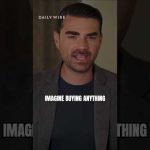Pope Francis, born Jorge Mario Bergoglio in Buenos Aires to Italian immigrant parents, leaves behind a legacy that will be debated for generations. Rising from humble beginnings—including stints as a nightclub bouncer and janitor—he entered the Jesuit order in 1958, quickly ascending to become the provincial leader of Argentina’s Jesuits during the nation’s violent Dirty War. While many clergy in Latin America gravitated toward radical social movements and even Marxism during this era, Bergoglio charted a more cautious course, focusing on the Church’s mission without overt political entanglement. This stance, while principled, led to tension with some of his Jesuit peers and a period of isolation from the Church’s power centers in Buenos Aires.
Despite these setbacks, Bergoglio’s steadfastness and reputation for humility eventually led to his appointment as Archbishop of Buenos Aires in 1998 and elevation to cardinal in 2001. His election as pope in 2013 was historic: he was the first Jesuit, the first Latin American, and the first pope from the Southern Hemisphere. His selection followed the unprecedented resignation of Pope Benedict XVI, and Francis immediately signaled a new direction by choosing to live in a modest guest house rather than the opulent Apostolic Palace, emphasizing approachability and humility over tradition.
Pope Francis’s papacy was marked by a strong focus on social issues, including poverty, migration, and climate change. He championed the marginalized, called for action on environmental stewardship, and advocated for a more inclusive Church. His famous “Who am I to judge?” remark regarding gay priests set a more compassionate tone toward LGBTQ Catholics, though he stopped short of endorsing same-sex marriage or ordaining women as priests. These moves endeared him to progressives but drew sharp criticism from traditionalists, particularly in the United States, who felt that his emphasis on social justice came at the expense of doctrinal clarity and tradition.
Francis also undertook significant reforms within the Vatican, targeting financial transparency and accountability, and addressing the Church’s handling of clerical sexual abuse with new procedures for reporting and accountability. He appointed cardinals from across the globe, shifting the Church’s center of gravity away from Europe and toward the developing world. Yet, his papacy was not without controversy: critics argued that his reforms did not go far enough, and his outreach to groups traditionally at odds with Church teaching sometimes created confusion and division within the Catholic community.
In his final years, Pope Francis’s health declined, with repeated hospitalizations for respiratory issues and mobility challenges that required him to use a wheelchair. He died on April 21, 2025, at the age of 88, after a battle with pneumonia and related complications. His passing marks the end of a transformative era for the Catholic Church—one defined by a pope who sought to balance tradition with compassion, and who challenged both his supporters and critics to reconsider what it means to serve the world’s 1.4 billion Catholics in the modern age.




